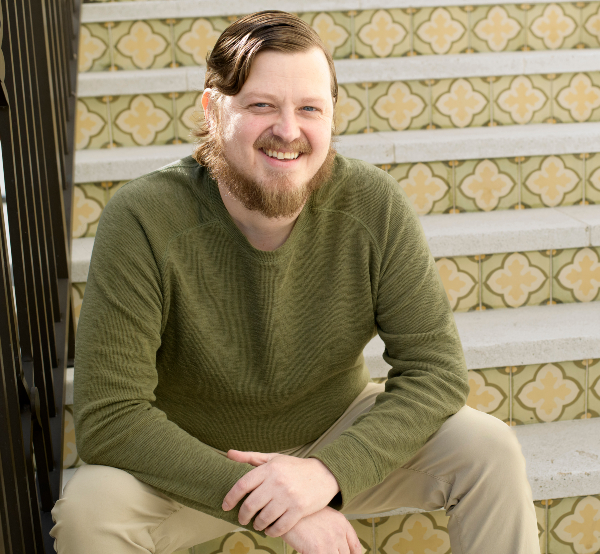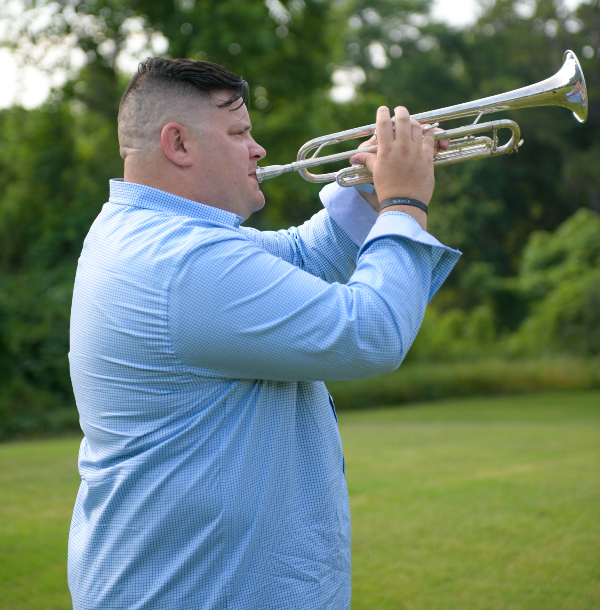Veterans Unlock the Healing Power of Writing: How Poetry and Music Help Warriors Heal

Marine veteran Nick Morrison had four days to transition from a battlefield in Fallujah, Iraq, to his home in Bloomington, Indiana. One year after his return home from combat and while suppressing symptoms of post-traumatic stress disorder (PTSD), Nick turned to alcohol as a way to cope.
“I was either going to drink myself to death, go to jail, or die fighting,” Nick said. “I was angry, scared, isolated, and I didn’t know where to start. I finally sought help. Veterans like to think we can fix anything. Yet many struggle with 'fixing' ourselves and need help.”
While Nick was in Iraq, he coped by using his own reverse psychology. “I had to tell myself that I was dead because that was the only way I could keep going,” Nick said. “Once I accepted that I was a dead man walking, it was a weird, liberating feeling.”
“I was not the same person at the end of my deployment that I was at the beginning,” Nick added.
For Nick and many other veterans, it was difficult to realize he needed help. He had no visible injuries, so he thought he was OK.
Ultimately, with help from his family, friends, and Wounded Warrior Project® (WWP), Nick found help through WWP’s Warrior Care Network. “The Road Home program in Chicago allowed me to peel off layers of anger. I was finally able to see my dragons, talk to my dragons, and make peace with them.”
Nick connected with other veterans through WWP and started sharing his experiences and coping mechanisms.
It was then that he found a new way to process his combat stress: writing in a journal.
Warrior’s Poem Finds New Life in Song
Creating a story, a poem, or a song are powerful ways for veterans to transform their feelings into something they can share. The writing process provides the opportunity to discover meaningful ways to communicate those experiences to the world.
After Warrior Care Network, Nick attended a veteran connection event where warriors shared a piece of writing that was put to song by a small group of musicians and veterans.
“I like to write, and I have to get things out of my head,” Nick said. “To have someone sing it and bring it to life, that was … I mean, I couldn’t stop smiling and crying – both at the same time.”
Writing and composing helped Nick find a whole new way to share his story and inspire others.
“It means a lot to me to be able to talk with other veterans and share my experiences,” Nick said. “To be empowered to put things down in writing and even share my thoughts in a song, that is a privilege, and I just hope other warriors hear that and know that they’re not alone.”
Nick said that while writing provides a sense of closure and creativity, it also helps manage day-to-day situations. "I have used writing to help with anxiety," Nick explained. "For example, I had a lot of anxiety when flying in a plane, so I would make it a point to try and write a poem while awaiting take-off. It would take my mind off the perceived trigger and offer a healthy outlet to create something good out of it."
An Extension of Service: Inspiring Others Through Music and Lyrics
Army veteran Jake Norotsky was on active duty with the Army National Guard for 14 years. He worked his way up to helicopter crew and taught aviation as a civilian. He helped establish a high school aviation program in four schools.

Jake and his brother lived on their own when he was a high school senior. They had lost their dad to suicide and had a difficult upbringing. Jake worked full-time from a young age and joined the Pennsylvania National Guard as a trumpet player. He played at funerals and during departure ceremonies. He served proudly when it was his turn to deploy and was exposed to combat, medical evacuations, and PTSD.
After military service, Jake moved to Alabama to attend Auburn University and continue pursuing his love of flying. He flew planes, he started teaching, and he built a family life. But he knew there were things he was holding on to.
“It wasn’t until I went to a Project Odyssey workshop with Wounded Warrior Project that I was able to start letting go — with the new understanding that letting go doesn’t mean forgetting,” Jake said.
Jake’s dad was a Vietnam veteran who turned to preaching as a way to continue serving others. Unfortunately, Jake’s dad died by suicide when Jake was in 10th grade.
“My dad led me to a life of service from a young age,” Jacob said, “and that’s exactly what I’m doing now. I’m back serving my brothers and sisters, helping them learn about Wounded Warrior Project so they know help is out there. They don’t have to struggle for so long like I did."
After a recent WWP event, Jake channeled his experiences into a song with help from fellow veterans.
“Sometimes we carry around things that we don’t even know are there, and those things weigh us down,” Jake said. “Creativity in art, writing, and music opens us up and helps us release things – and this process can help other people.”
Jake shared that there were aspects of his relationship with his dad that he needed to let out. The process of writing a song helped him let go instead of keeping it locked inside.
“We all have a story to tell – if we keep the story inside, that story becomes a chain,” Jake said. “If you let the story out, it inspires and empowers other people.”
Jake said he wanted to write a song to his dad because his dad wasn’t around when Jake enlisted in the Army National Guard and followed a life of service – like his dad.
The song says, in part: “Someday we’ll meet again, and you’ll get to see that I’m the man you prayed I’d be…” It is a nod to the dreams parents and children often share and do not always see fully realized in this lifetime.
Jake plans to record the song with help from U.S. Marine Corps veteran and singer-songwriter Sal Gonzalez and release it in the coming months.
Some of WWP’s connection events include art, storytelling, and songwriting workshops. One WWP-sponsored writing course focused on teaching warriors to create scripts for television or movies. Several veterans have rediscovered their passion for art and creativity through WWP-organized events and online workshops.
About Wounded Warrior Project
Since 2003, Wounded Warrior Project® (WWP) has been meeting the growing needs of warriors, their families, and caregivers — helping them achieve their highest ambition. Learn more.